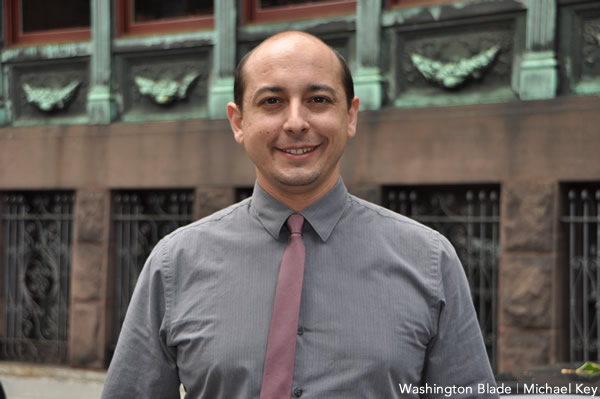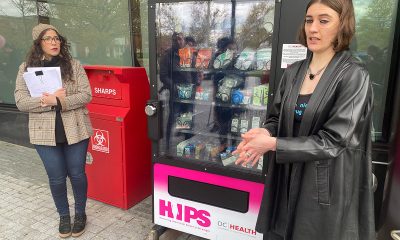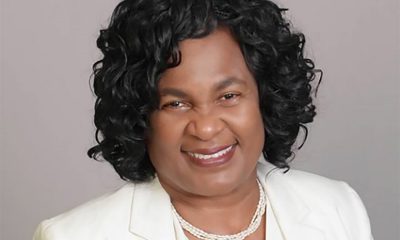Health
Pre-AIDS conference events to focus on gay men’s health, sex workers rights
Gay Men’s Health Summit will take place at GWU on Friday and Saturday
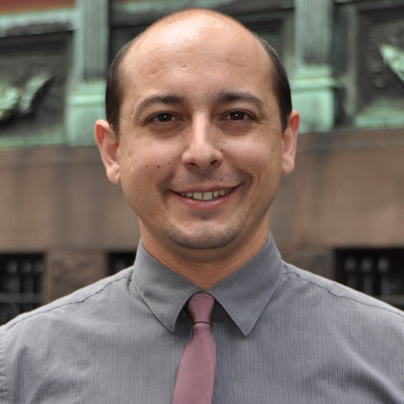
With about 30,000 people expected in D.C. for the International AIDS Conference; a number of panels and other events are scheduled to take place in D.C. before AIDS 2012 officially opens on Sunday.
The Gay Men’s Health Summit will take place at George Washington University on Friday and Saturday. Whitman-Walker Health, Us Helping Us, the D.C. LGBT Community Center, The GWU School of Medicine and Health Sciences, the National Coalition for LGBT Health and Master Taino’s Leather Family co-sponsored the two-day gathering that will feature more than 40 workshops on a range of topics. These include coming out as an older adult, mental health and addiction among gay and bisexual men.
Activist and researcher Dan O’Neill and Brant Miller of the D.C. Center on Friday will present a workshop on the D.C. FUK!T campaign that uses sexually explicit messages to promote condom and lube use among men who have sex with men. HIV/AIDS activists in Seattle launched a similar initiative last year, but O’Neill told the Blade that he is optimistic that service providers in other cities will create their own FUK!T-inspired safer-sex campaigns.
“Hopefully with the diverse audience that will be there, they can recreate similar programs where they are if they aren’t already there,” he said.
Latino GLBT History Project President David Pérez and others on Saturday will present a workshop on the impact of HIV/AIDS on gay Hispanics. Frank Walker and DeAndre Roberts of Youth Pride Services and DeAndre Preston of Code Red will moderate a panel on young black gay men in the United States on Friday. This workshop will also coincide with the release of a national study that details the experiences of roughly 2,000 black LGBT youth from across the country and Puerto Rico.
“There is something there for everyone,” said Walker, referring to the summit and its focus on gay men’s health. “From what I’ve seen so far, it’s probably one of the best places to get that information with like-minded people.”
In addition to the Gay Men’s Health Summit, the Global Forum on MSM and HIV will take place on Saturday. The International Network of Religious Leaders Living with or Personally Affected by HIV/AIDS conference will take place at Howard University through tomorrow, while Youth Force’s annual gathering at Gallaudet University will conclude on the same day.
Helping Individual Prostitutes Survive will host a pre-conference strategy session at its Northeast Washington offices on Saturday in support of sex-workers’ rights. “The goal is to really get sex workers together to talk about our plans for the conference itself and moving our agenda forward,” said HIPS executive director Cyndee Clay.
Current U.S. immigration policy prohibits sex workers and drug users from entering the country—thousands of sex workers and their allies are expected to gather in Kolkata, India, for a conference that will take place during AIDS 2012. HIPS plans to live-stream this gathering at its Global Village exhibit during the D.C. conference.
Ending this ban is among the four issues outlined in a so-called call to action that urges the federal government to adopt policies that signatories hope will more effectively prevent the spread of HIV/AIDS among sex workers.
“The United Nations considers sex workers and their clients to be two of the populations most at risk for HIV infection,” reads the declaration. “Structural issues drive the HIV epidemic within the sex sector – criminalization and stigma compound health disparities already affecting those on the wrong end of racial, economic and gender inequality. Yet when they are empowered to be leaders, connected to services and resources, and supported to address social injustice, sex workers have been some of the most effective communities at curtailing the spread of AIDS. Currently, the U.S. imposes and continues to expand harmful policies affecting sex workers both domestically and abroad, putting them at increased risk for HIV.”
Health
MISTR announces it’s now prescribing DoxyPE
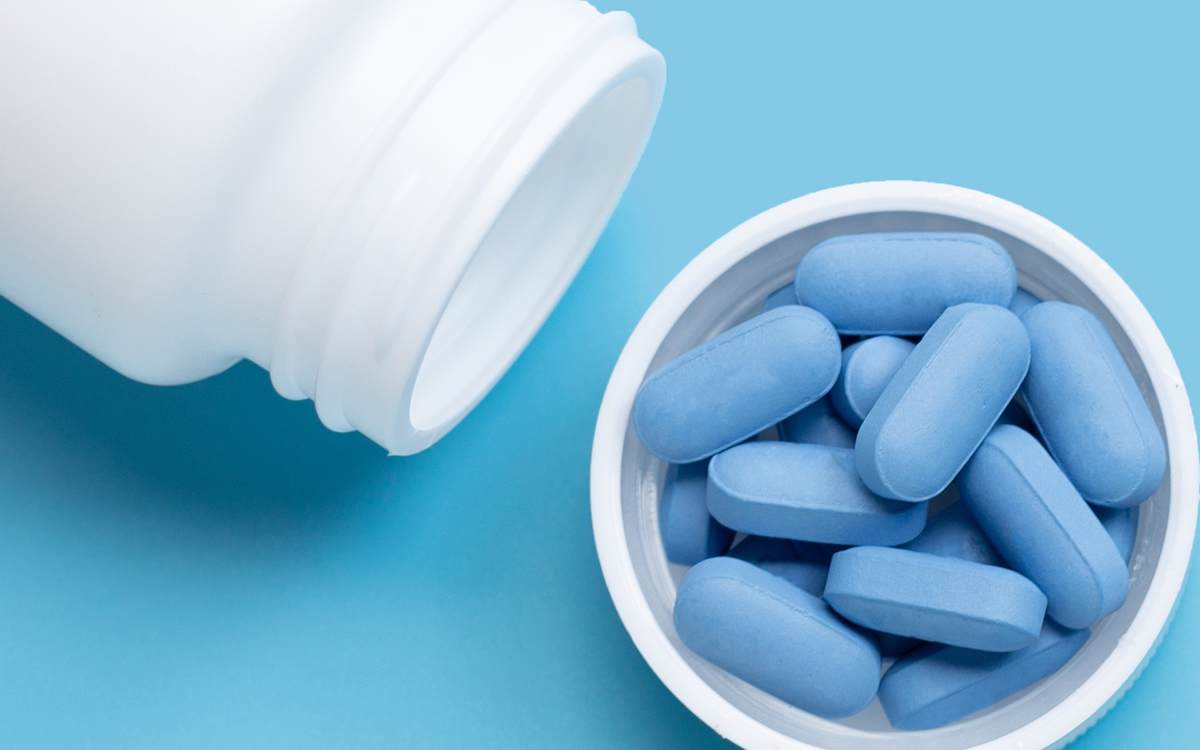
MISTR, the telemedicine provider that offers free online PrEP and long-term HIV care in all 50 states, D.C., and Puerto Rico, announced it is now prescribing Doxycycline Post-Exposure Prophylaxis (DoxyPEP), an antibiotic that reduces bacterial STIs, including gonorrhea, chlamydia, and syphilis. Patients can now use MISTR’s telehealth platform to receive DoxyPEP online for free, according to a release from the company.
With this launch, MISTR plans to offer patients access to post-exposure care, in addition to its existing preventive and long-term HIV treatment options, which include PrEP and antiretroviral therapy (ART). This comes at a time when the rate of STIs continue to rise. In 2022, more than 2.5 million cases of syphilis, gonorrhea, and chlamydia were reported in the U.S; of that population, gay and bisexual men are disproportionately affected, the company reported.
“Despite an ongoing STI epidemic affecting the LGBTQ+ community, there are few resources available for this underserved, vulnerable community to get the preventative medication they need,” said Tristan Schukraft, CEO and founder of MISTR. “I’m proud that MISTR is democratizing access to PrEP, HIV care, and now DoxyPEP.”
An NIH-funded study published by the New England Journal of Medicine in April 2023 found that doxycycline as post-exposure prophylaxis, now known as DoxyPEP, reduced syphilis by 87%, chlamydia by 88%, and gonorrhea by 55% in individuals taking HIV PrEP, and reduced syphilis by 77%, chlamydia by 74% and gonorrhea by 57% in people living with HIV.
MISTR is a telemedicine platform offering free online access to pre-exposure prophylaxis (PrEP) and long-term HIV care Visit mistr.com for more information.
Health
UNAIDS to commemorate Zero Discrimination Day’s 10th anniversary
UN agency urges global action to protect human rights
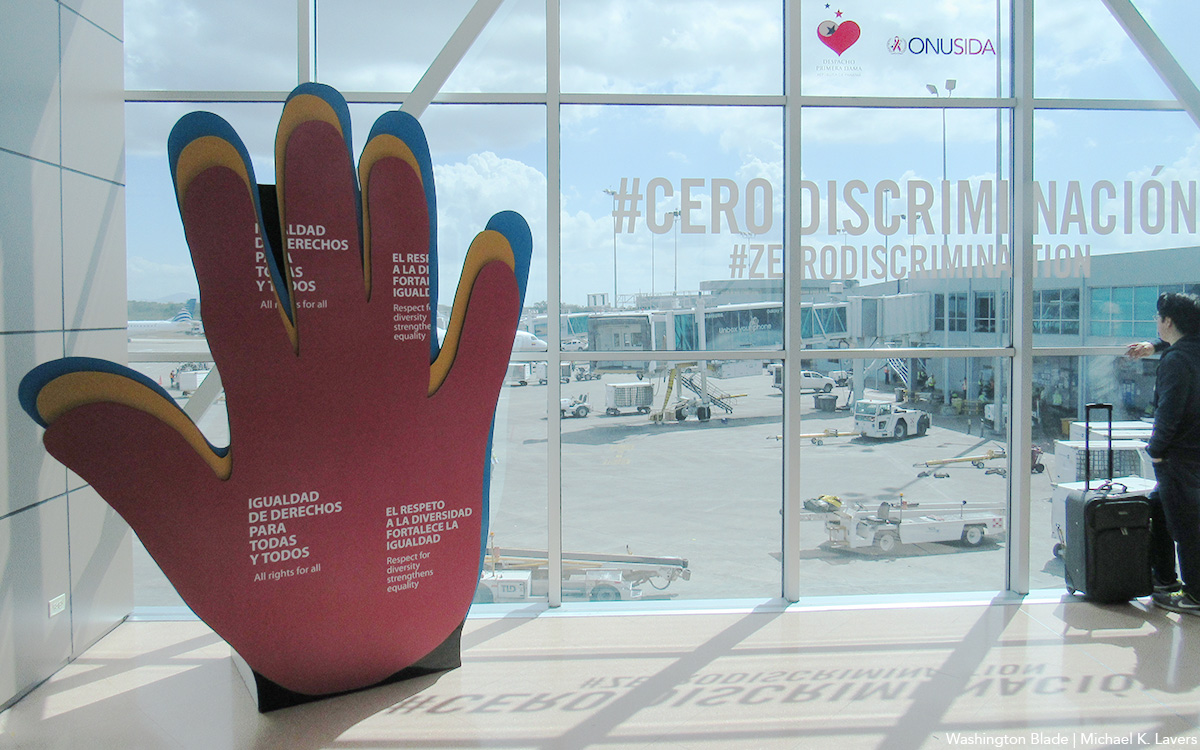
As the world marks the 10th anniversary of Zero Discrimination Day; UNAIDS is sounding the alarm on the increasing threats to human rights, calling for renewed efforts to protect the rights of all individuals as a fundamental step towards ensuring health for everyone.
Established by UNAIDS a decade ago, Zero Discrimination Day aims to promote equality and fairness regardless of gender, age, sexuality, ethnicity or HIV status. The progress achieved over the past years is now in jeopardy, however, due to rising attacks on the rights of women, LGBTQ people and other marginalized communities.
UNAIDS Executive Director Winnie Byanyima emphasized the critical link between protecting human rights and safeguarding public health.
“The attacks on rights are a threat to freedom and democracy and are harmful to health,” she said in a press release. “Stigma and discrimination obstruct HIV prevention, testing, treatment and care and hold back progress towards ending AIDS by 2030. It is only by protecting everyone’s rights that we can protect everyone’s health.”
Despite challenges, there has been notable progress.
At the onset of the AIDS pandemic more than 40 years ago, two-thirds of countries criminalized consensual same-sex sexual relations. They are now decriminalized in two-thirds of countries. An additional 38 countries around the world have pledged to end HIV-related stigma and discrimination, contributing to positive changes that include 50 million more girls attending school compared to 2015.
To sustain and enhance these advancements; UNAIDS urges global support for women’s rights movements, LGBTQ rights, racial justice, economic justice, climate justice and peace initiatives. By standing with communities advocating for their rights, the U.N. aims to reinforce the collective effort towards a more inclusive and equitable world.
Zero Discrimination Day is observed on March 1.
Events and activities that will take place around the world throughout the month will serve as reminders of the essential lesson and call to action: Protecting everyone’s health is synonymous with protecting everyone’s rights.
“Through upholding rights for all, we will be able to achieve the Sustainable Development Goals and secure a safer, fairer, kinder and happier world — for everyone,” said Byanyima.
Health
New CDC report finds transgender women at higher risk for HIV
More than 1,600 people in seven cities surveyed
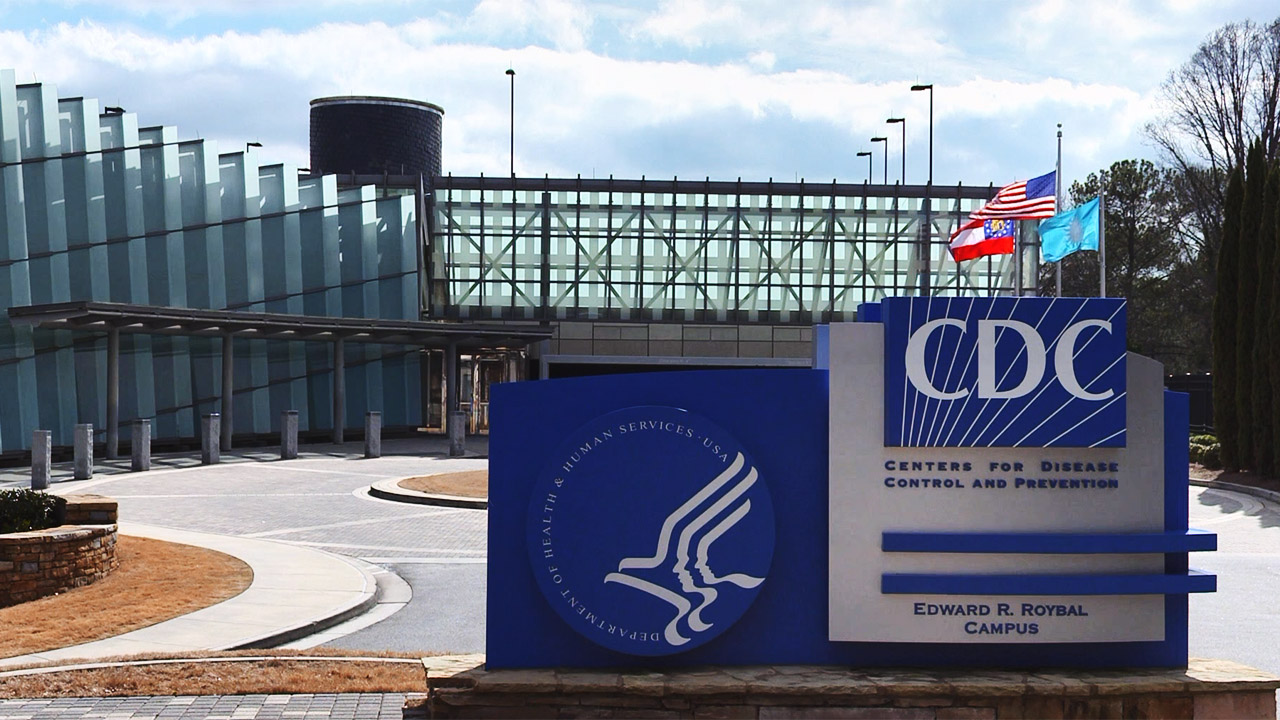
The Centers for Disease Control and Prevention issued a new study report this week that revealed that restricted by employment and housing discrimination and lack of access to needed gender-affirming healthcare for transgender women increasing the risk of contracting HIV.
Researchers reviewed data from a 2019-2020 survey, the National HIV Behavioral Surveillance Among Transgender Women, which found that the demographics of HIV/AIDS have been disproportionally high, especially among Black and Latina trans women, who had experienced employment and housing discrimination coupled with lack of access to gender-affirming healthcare.
The Jan. 25 Morbidity and Mortality Weekly Report was based on data studies of more than 1,600 trans women in seven major urban locales. Participants from Atlanta, Los Angeles, New Orleans, New York, Philadelphia, San Francisco and Seattle were chosen by referrals from people and community-based organizations who knew or were part of the local population of trans women.
The study’s researchers noted: “Employment discrimination occurs at the overlapping nexus of poverty, homelessness, incarceration, health insurance, disability, food insecurity and survival sex work. These issues are interconnected.”
The study stated that trans women’s inability to access quality healthcare, including gender-affirming treatment or access to PrEP, and can expose them to potential incarceration as many turn to “survival sex work” and violence, which increases the risk of contracting HIV.
The study’s author’s pointed out: “When economically marginalized transgender women are refused employment, this refusal cyclically contributes to economic hardships. This analysis …demonstrates the importance of transgender women working and living with dignity and without fear of unfair treatment.”
-

 a&e features4 days ago
a&e features4 days agoPride season has begun
-

 Federal Government5 days ago
Federal Government5 days ago4th Circuit rules gender identity is a protected characteristic
-

 The White House1 day ago
The White House1 day agoJudy Shepard to receive Presidential Medal of Freedom
-
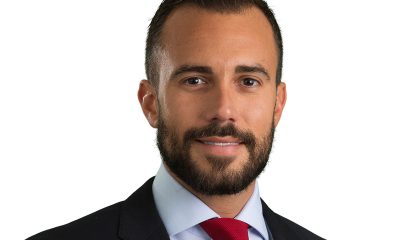
 World4 days ago
World4 days agoNew World Bank US executive director: LGBTQ rights are human rights

